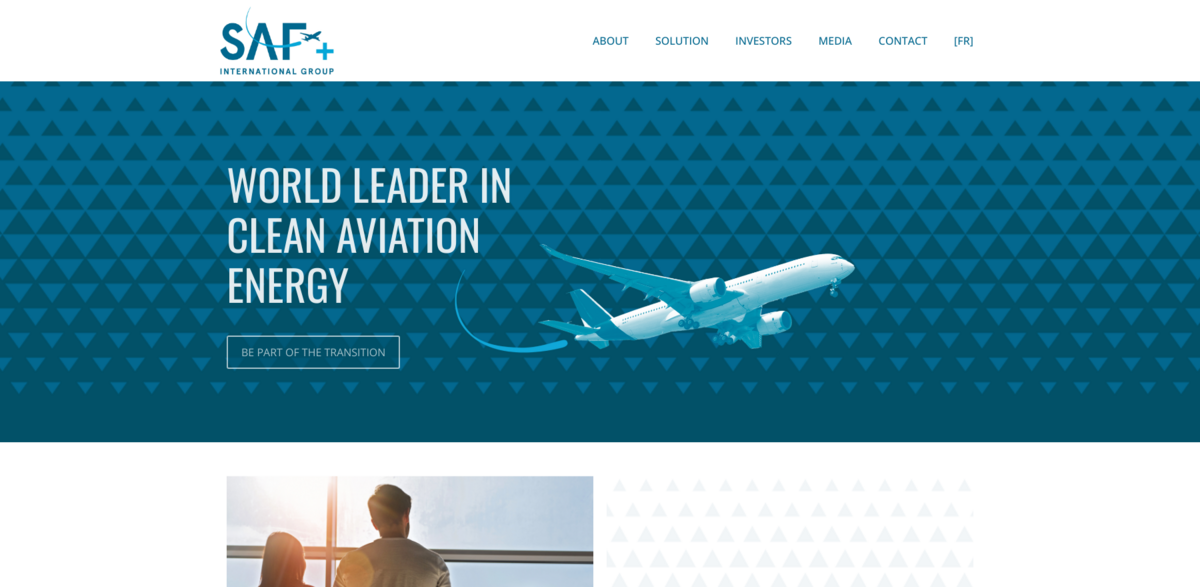What is the SAF+ International Group Project?
SAF+ International Group is a world leader in clean aviation energy, actively developing projects around the globe with a focus on drop-in Electro-Sustainable Aviation Fuel (e-SAF) that offers a reduction of over 90% in carbon footprint compared to conventional jet fuel. This initiative is all about transforming the aviation industry’s energy sources by recycling waste industrial CO2 emissions and using a commercially proven fuel synthesis process that employs clean electricity, recycled carbon dioxide, and water. In essence, the SAF+ project brings together the best technical and aviation expertise with a highly innovative technology and approach that spans across the Canadian coalition of actors, including Carbon Consult Group, CO2 Solutions Inc., Air Transat, Aéroport de Montréal, Valorisation Carbone Québec Project, CIRAIG, and Hatch. The project is designed to take a significant step toward sustainable flying, meeting the 2050 Fly Net Zero commitments.
Main Benefits and Key Figures
The SAF+ International Group project offers numerous benefits that underline its industry leadership and environmental impact. Below is a list of key figures and facts:
- E-SAF is designed to reduce carbon emissions by 90%+ compared to conventional jet fuel.
- The planned industrial production units can recycle nearly 300,000 tonnes of industrial CO2 emissions annually.
- Over 90 million litres of sustainable aviation fuel are expected to be produced each year.
- The project creates hundreds of high-quality and well-paid local jobs, contributing to regional economic development.
- Strategic alliances with renowned partners such as Schneider Electric and Air France-KLM Group emphasize the significance and global reach of this initiative.
Innovative Technology and Process
The core technology behind e-SAF is both mature and innovative. It is a drop-in sustainable aviation fuel that uses recycled CO2, water, and clean energy, and it integrates seamlessly with the existing aviation infrastructure. The process, which recycles industrial waste CO2 emissions, is not only commercially proven but also reinforces the idea that sustainability and industrial efficiency can go hand in hand. The technology is described as cutting-edge and efficient… ensuring that the fuel is produced using processes that have been refined to meet the high demands of today’s aviation sector.
Global Collaborations and Partnerships
The influence of SAF+ International Group reaches far beyond its technological prowess. The project is strongly supported by a wide network of strategic partners who are instrumental in promoting the use of e-SAF worldwide. Notable collaborations include a memorandum of understanding signed with Schneider Electric as well as an agreement with the Air France-KLM Group for e-SAF supply. Additionally, partnerships with key industry players such as Airbus Canada, Pratt & Whitney Canada, and the SAF+ Consortium in Quebec, Canada, highlight the project’s commitment to developing next-generation sustainable aviation fuels. These partnerships are essential for building the international e-SAF ecosystem that focuses on policy influence, knowledge sharing, and educational initiatives.
Regional Impact and Development
The localized production of e-SAF is expected to make a remarkable contribution to regional development. By enhancing fuel security and meeting strict carbon reduction targets, local production facilities will spur economic growth, create hundreds of enticing job opportunities, and boost overall regional innovation. The focus here is not solely on technological advancement but also on transforming local communities through economic empowerment and the establishment of a sustainable energy infrastructure. This integration of environmental goals with economic benefits is one of the aspects that make SAF+ International Group a trailblazer in clean aviation energy.
Project Impact on Sustainable Development Goals
- SDG 7: Affordable and Clean Energy – by promoting clean energy solutions in aviation.
- SDG 9: Industry, Innovation and Infrastructure – through the development and application of mature, innovative technologies.
- SDG 11: Sustainable Cities and Communities – contributing to local economic development and enhancing regional fuel security.
- SDG 13: Climate Action – by drastically reducing the carbon footprint of the global aviation industry.
Future Prospects and the Transition to Clean Aviation
Looking forward, the SAF+ International Group project stands as one of the most immediate and efficient solutions for meeting ambitious climate targets. The e-SAF initiative acts as a beacon for the transition towards a more sustainable future in aviation. By effectively recycling nearly 300,000 tonnes of industrial CO2 emissions and producing over 90 million litres of green aviation fuel every year, the project represents an essential synergy between technology, policy, and environmental stewardship. With industry leaders coming together, the initiative not only counters the global climate crisis but also opens up new avenues for regional growth, technology integration, and job creation. It is a clear example of how ongoing innovation in sustainable fuels can redefine the future of aviation, turning challenges into opportunities for both the economy and the environment… The project paves the way for a cleaner, greener, and more sustainable aviation sector that could potentially serve as a model for other industries worldwide.


















